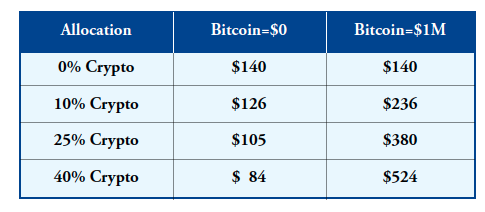
Ken Polk, founder of Arlington Family Offices, believes that wealth without heart is scaffolding awaiting collapse. In a conversation with Private Banker International, he shares why most estate plans fail, how to anchor family legacies in purpose, and why true succession is more spiritual than structural.
More than 70% of estate plans, according to Polk, don’t fail in courtrooms, they unravel at kitchen tables.
“The reasons behind plans becoming undone are deeply human,” says Polk. “There’s no animating spirit in the plan - facts without narrative. No relationship has been cultivated to pass on the meaning behind the wealth - instructions without a soul.”
As founder of Arlington Family Offices, Polk has spent decades guiding ultra-high-net-worth families not just through financial strategies, but through legacy-building that aims to preserve both wealth and identity. What he’s seen is a recurring pattern: technically sound estate structures that collapse because they lack emotional integrity and shared family purpose.
“The anatomy of failure isn’t structural, it’s spiritual,” he says. “Families often hire competent counsel and build technically sound structures. But without the 3 Laws of Preservation, the plan is just scaffolding without a centre.”
Those three laws?
“Law 1: Your footprint is the blueprint for your legacy. Character isn’t an accessory - it’s the architecture.
“Law 2: Your family’s collective purpose will determine its longevity. A legacy can’t survive on one person’s dream. The family must be on a shared journey, each member sharpening the other.
“Law 3: The method and means by which you accumulate your wealth will determine your lineage. How wealth is made will dictate how it is respected, and how heirs treat each other. That’s where lineage takes root.”
Traditional estate documents, Polk argues, fail because they ‘whisper when they should thunder’. “Traditional documents fixate on tax efficiency and asset protection, but they forget the why. Rarely do they begin with: This is a gift of love. Or: These assets exist to nourish lives. The heart is missing. And without heart, structure is scaffolding awaiting collapse.”
Succession as a Discipline
Succession planning, for Polk, is less a legal task than a rhythm, a repeated practice that integrates the next generation early and often.
“Succession isn’t a singular event, it’s a discipline. A rhythm. It should be on the family calendar like a board meeting: annual, intentional, strategic,” he says. “Bring the next generation into the room early, not just to listen but to speak, shape, and someday lead.”
Story ContinuesMistakes in succession, he says, often come down to misaligned expectations and a lack of transparency.
And secrecy? “Too often, plans are written in shadows and sprung on heirs like a surprise quiz. Families need clarity, courage, and candour. Anything less breeds confusion and quiet resentment.”
The Human Undercurrent
Emotion, Polk insists, isn’t a distraction in legacy planning, it’s the bedrock. “Family dynamics are the undercurrent. Ignore them and they’ll erode the shoreline. Address them, and they can become your strength.”
He recommends involving objective, independent advisers - “voices who are willing to tell the emperor he has no clothes, and do so with love.” Integration, not elimination, of emotion is the goal.
That emotional foundation is reflected in a tool Polk’s team calls the Build a Better Family Checklist, which includes steps like clarifying values, identifying gifts, and living on purpose.
“Families meet annually - not just to discuss money, but to become more human together. This isn’t just wealth management. It’s identity cultivation.”
Shifting Fears, Shifting Focus
When Polk founded Arlington in 1998, wealthy families feared the old adage: “shirt sleeves to shirt sleeves.” But today?
“But now? The capital has grown so vast, many families are functionally “too big to fail.” The fear has shifted. It’s no longer about losing the money - it’s about losing the meaning.”
That’s why families today, he says, are increasingly embedding values into trusts, turning foundations into crucibles for identity, and viewing estate planning as an act of cultural transmission.
His advice to the rising generation inheriting wealth?
“If the inheritor of wealth is struggling with it, this means they care. They have an opportunity to work through the process and place a soul into their wealth planning documents.” One method he suggests: writing a Legacy Letter - a personal message to family members expressing the meaning behind the wealth.
“Ask yourself a hauntingly simple question: Are you saving your best thinking for your business or your family? If the answer is the former, you’ve got work to do. Great legacies begin with an awakening. A shift in focus.”
And perhaps, Polk says, with a single book: Family Wealth by Jay Hughes. “Not for tactics - but for vision. It’s a lantern in the dark.”
"Beyond the balance sheet: Soul of Legacy" was originally created and published by Private Banker International, a GlobalData owned brand.
The information on this site has been included in good faith for general informational purposes only. It is not intended to amount to advice on which you should rely, and we give no representation, warranty or guarantee, whether express or implied as to its accuracy or completeness. You must obtain professional or specialist advice before taking, or refraining from, any action on the basis of the content on our site.













